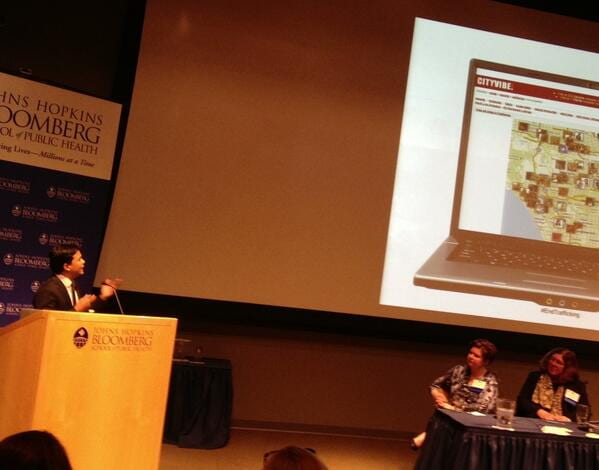 “Technologies are being used by malicious actors to create illicit networks,” CCLP research director Mark Latonero said at a first-of-its-kind symposium on addressing the needs of victims of child sex trafficking. “However,” he continued, “the use of such tools leaves digital fingerprints which law enforcement can use to combat criminal activity such as domestic child sex trafficking.”
“Technologies are being used by malicious actors to create illicit networks,” CCLP research director Mark Latonero said at a first-of-its-kind symposium on addressing the needs of victims of child sex trafficking. “However,” he continued, “the use of such tools leaves digital fingerprints which law enforcement can use to combat criminal activity such as domestic child sex trafficking.”
Latonero presented research from the CCLP’s groundbreaking initiative on Technology & Trafficking at the forum held on May 1-2, 2013 at Johns Hopkins Bloomberg School of Public Health in Baltimore. The symposium is part of a White House initiative and was hosted by the Johns Hopkins Bloomberg School of Public Health, the Advisory Council on Child Trafficking (ACCT), and the Goldman Sachs 10,000 Women program.
“We now live in a world where 80% of the population has access to a cell phone. In some countries, such as in Thailand, there are more cell phones than there are people. Technology is now impacting our social lives in unprecedented ways,” Latonero said.
He outlined the potential of harnessing technology to combat child sex trafficking, but cautioned that all technology interventions should abide by the principle of ‘do no harm,’ and guard against unintended consequences and implications for victims.
Latonero joined the symposium’s Interdisciplinary Research Panel which also featured Dr Rebecca Campbell, Professor of Psychology at Michigan State University and Dr Linda Williams, Professor of Criminology and Justice Studies at the University of Massachusetts, Lowell. The symposium included remarks by Valerie Jarrett, senior advisor to the President of the United States, and Dina Habib Powell, CCLP board member and president of the Goldman Sachs Foundation.
Latonero also chaired a closed-session Technology Working Group tasked with bringing leading researchers, bipartisan policy makers and advocates to identify gaps in research, best practices, and evidence to improve the lives of sexually exploited children.